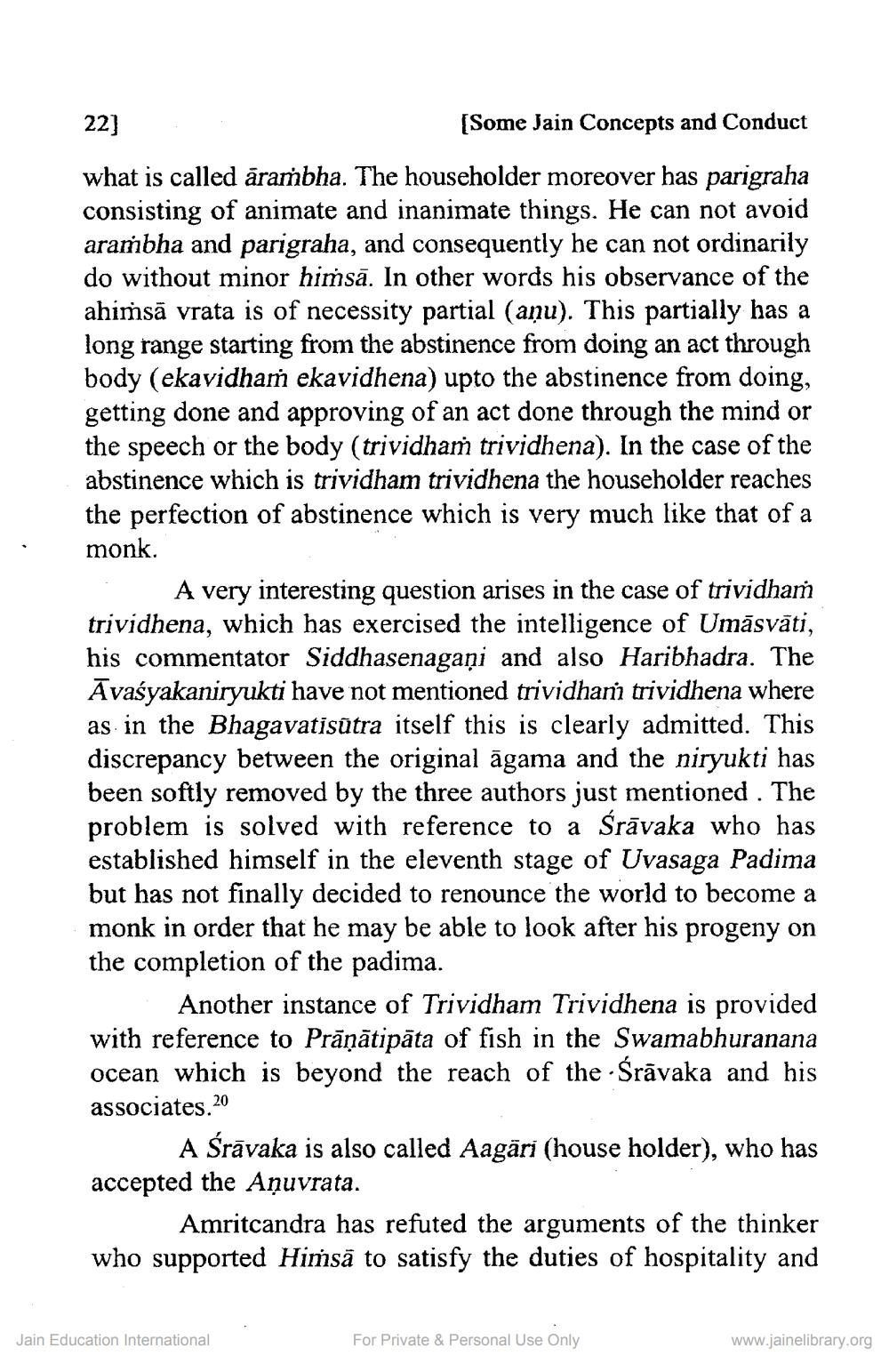________________
22]
[Some Jain Concepts and Conduct
what is called arambha. The householder moreover has parigraha consisting of animate and inanimate things. He can not avoid arambha and parigraha, and consequently he can not ordinarily do without minor himsā. In other words his observance of the ahimsā vrata is of necessity partial (aņu). This partially has a long range starting from the abstinence from doing an act through body (ekavidham ekavidhena) upto the abstinence from doing, getting done and approving of an act done through the mind or the speech or the body (trividhaṁ trividhena). In the case of the abstinence which is trividham trividhena the householder reaches the perfection of abstinence which is very much like that of a monk.
A very interesting question arises in the case of trividham trividhena, which has exercised the intelligence of Umāsvāti, his commentator Siddhasenagani and also Haribhadra. The Avaśyakaniryukti have not mentioned trividhani trividhena where as in the Bhagavatisūtra itself this is clearly admitted. This discrepancy between the original āgama and the niryukti has been softly removed by the three authors just mentioned. The problem is solved with reference to a Śrāvaka who has established himself in the eleventh stage of Uvasaga Padima but has not finally decided to renounce the world to become a monk in order that he may be able to look after his progeny on the completion of the padima.
Another instance of Trividham Trividhena is provided with reference to Prāņātipāta of fish in the Swamabhuranana ocean which is beyond the reach of the - Śrāvaka and his associates.20
A Srāvaka is also called Aagāri (house holder), who has accepted the Aņuvrata.
Amritcandra has refuted the arguments of the thinker who supported Himsā to satisfy the duties of hospitality and
Jain Education International
For Private & Personal Use Only
www.jainelibrary.org




